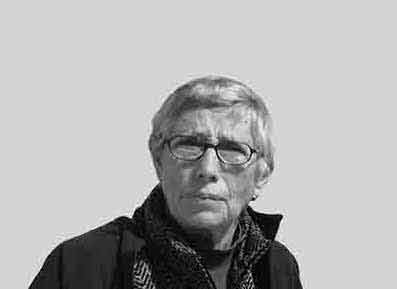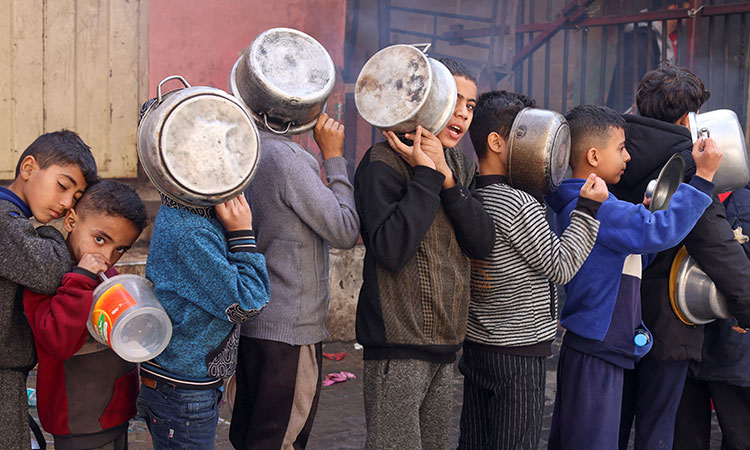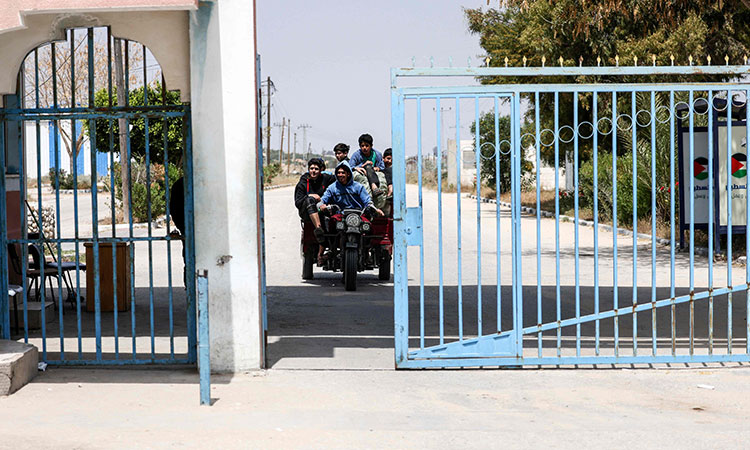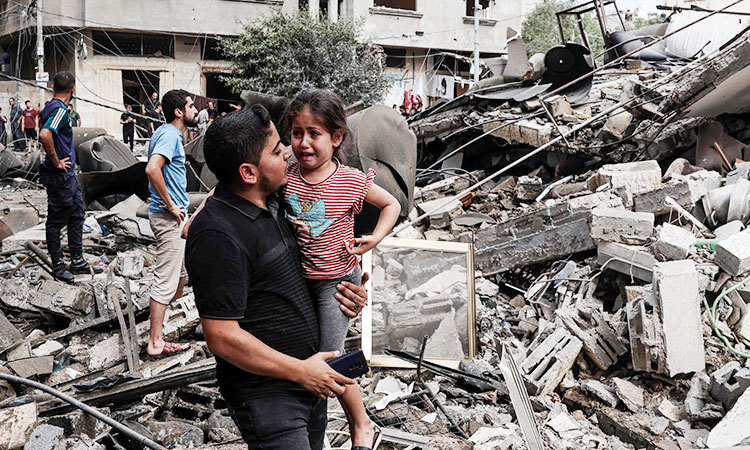Israel has been gunning for UNRWA for decades

Michael Jansen
The author, a well-respected observer of Middle East affairs, has three books on the Arab-Israeli conflict.

Pro-Palestine protesters gather at Jamaica train station in New York City. Agence France-Presse
Israel timed its accusations against employees of the UN agency caring for Palestinian refugees (UNRWA) to have the most explosive effect. Israel’s accusation that UNRWA staff had taken part in the October 7th Hamas raid on Israel during which 1,139 were killed and 240 taken captive coincided with the declaration by International Court of Justice (ICJ) that it would consider South African charges that Israel is committing genocide in Gaza. Israel’s aim was to deflect world attention from this landmark decision. Israel followed up the accusation against UNRWA staff by saying this news emerged just head of International Holocaust Remembrance Day, on which the world is meant to honour the six million Jews, gypsies, and others slain by the Nazis during World War II.
Israel has been gunning for UNRWA — both literally and politically — for decades. UNRWA was created by the UN General Assembly in 1949 to provide relief and services for most of the 750,000 Palestinians driven from their homes in Israeli-conquered Palestine during Israel’s war of establishment (1948-1949). UNRWA also initially aided some of the 150,000 Palestinians who remained in the 78 per cent of Palestine then occupied by Israel.
Israel flatly refused to allow expelled Palestinians to return to their homes, villages, and towns in line with the December 1948 General Assembly resolution 194, paragraph 11, which called for both repatriation at the “earliest practicable date” and compensation for losses incurred by Israel’s expulsion of the indigenous population of Palestine. Even if Israel had obeyed this call there would have been need for an UNRWA-type UN agency as Israel not only expelled Palestinians but also bulldozed some 500 Palestinian villages so they had nothing to return to and claim.
The Palestinians had taken refuge in Jordan, Lebanon, Syria, Iraq, and Gaza, which came under Egyptian control. As they could not afford to care for large numbers of refugees, UNRWA has provided food, shelter, medical services, welfare services as well as vocational and teachers training to make refugee self-supporting. Thousands joined UNRWA staff. Today UNRWA employs 30,000 Palestinians and cares for 5.7 million Palestinian refugees living in East Jerusalem, the West Bank and Gaza, occupied by Israel in 1967, and Jordan, Lebanon, and Syria. UNRWA’s name the “United Nations Relief and Works Agency for Palestine Refugees in the Near East” was always problematical for Israel as it reminded outsiders of the existence of the Palestinians.
Israel and its international allies sought to disappear Palestinians by refusing to identify them as Palestinians and calling them “Arab refugees” (as Israel has referred to its Palestinian citizens as “Arab Israelis.”) The use of the words “Palestine” to refer to the country Israel has seized and “Palestinians” as the people Israel displaced negatively impacts Israel’s legitimacy and reminds outsiders that Israel was established at the expense of native Palestinians.
UNRWA’s existence was also problematical for Israel as it accused the agency of perpetuating the “refugee” problem by identifying as Palestinian refugees descendants of parents rendered homeless in 1948. UNRWA camps enabled many of the original refugees to settle among fellow villagers and townspeople, thereby perpetuating their Palestinian identity and connection to their land. Israel and its allies wanted the refugees living in neighbouring countries to be absorbed by local “Arab” populations and given citizenship in those countries. On the one hand, Palestinians refused to forget their national origin, their land, and homes. Many had preserved documents proving their ownership of land and buildings and had kept the keys of their lost homes.
On the other hand, some host countries refused to assimilate them. Jordan gave citizenship and full rights to many even though they continued to reside in UNRWA camps. Syria allowed Palestinians to access education and work but did not grant them citizenship. Lebanon limited Palestinian employment to specific fields and refused naturalisation. Israel’s efforts to disappear the Palestinians was challenged by Palestinian resistance groups – Fatah, the Popular Front, the Democratic Front, and others – who formed the Palestine Liberation Organisation (PLO) in 1964. PLO leader Yasser Arafat demonstrated just how wrong Israeli Prime Minister Golda Meir was when she said in 1969, “It was not as though there was a Palestinian people in Palestine considering itself as a Palestinian people and we came and threw them out and took their country from them. They did not exist.” This was exactly what happened in 1948 and in 1967, when Israel expelled another 250,000.
From its creation until now, UNRWA has struggled to survive. Unlike the UN High Commissioner for Refugees which receives funding from the UN budget, UNRWA must raise its own finances. Israel’s main ally, the US, had donated about one-third of the agency’s services until 1988 when Donald Trump cut all support.
UNRWA managed to make up most of the deficit until the Biden administration provided $340 million in 2022. But it offered only $206.8 million in 2023. Since Israel’s campaign to disappear Palestinians has failed, Israel has focused on UNRWA with the long-term goal of disappearing the agency which enables Palestinians to exist as Palestinians.
The fact that Israel has charged a dozen UNRWA employees of involvement in the October 7th Hamas attack is the latest ploy in this campaign. The International Crisis Group’s Mairav Zonszein said on X, formerly Twitter: “Israel has been building a case against UNRWA for a long time. It said weeks ago it wants it phased out of Gaza.”
UN Secretary General Antonio Guterres has admitted that 12 UNRWA employees have come under investigation which is being carried out by an independent team from UN headquarters in New York. He said nine had been dismissed, one was dead and the “identity of the two others is being clarified.”
Meanwhile the US and its proxies have paused funding for UNRWA at a time the agency saves the lives of 2.3 million Palestinians living in Gaza who are threatened by Israeli bombing, shelling, and attacks by ground forces as well as by the lack of food, water, medicine, and shelter. UNRWA spokeswoman Juliette Touma pointed out in a BBC interview that putting UNRWA’s work at risk by suspending funding over the alleged but unproven actions of a few agency staff of the 13,000 currently employed in Gaza amounts “to collective punishment.” A million are sheltering in UNRWA schools, she said, while 1.9 million depend on UNRWA for essentials. Independent Ireland and Norway understand the situation and have refused to join the US and its pack of proxies.







